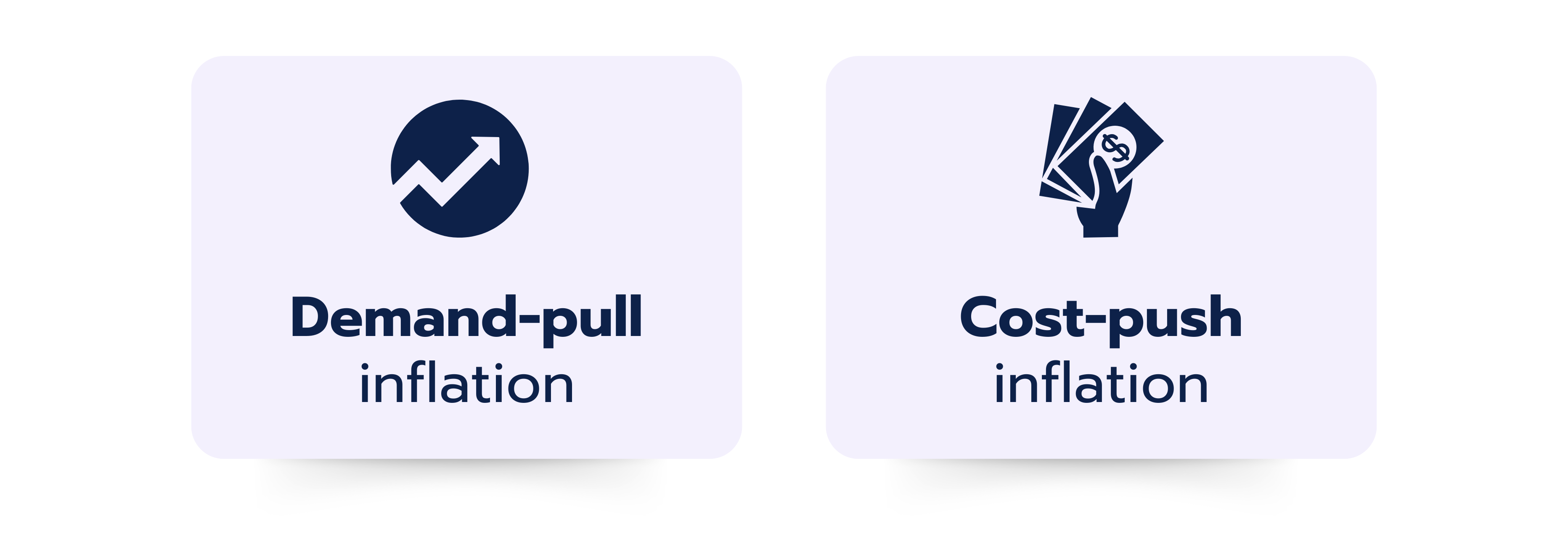Inflation is an economic phenomenon that almost all of us have experienced at some point – and not just at the grocery store. Simply put, inflation means that the prices of goods and services rise, and your money becomes less valuable. For example, if you can buy something for 10 euros today, you might be able to buy less of it in a few months with the same amount. 😅
But how does inflation actually happen? It usually results from an imbalance between supply and demand. A common cause is demand-pull inflation: when the demand for goods and services exceeds the supply, companies can raise their prices because they know that customers are still willing to pay more.
Another frequent cause is cost-push inflation. When companies face rising production costs – for example, due to higher wages or increased raw material prices – they often raise their prices to cover those additional expenses.

How Do Central Banks Fight Inflation?
Central banks try to control inflation through various monetary policy measures. One approach is to raise the interest rates. This means that loans become more expensive and fewer people can afford them, which reduces demand and may help stabilize prices. Another measure is to reduce the money supply, limiting the availability of money – this is also intended to help stabilize the price level.
The Impact of Inflation on Consulting Firms
Inflation presents a real challenge for the consulting industry, with both negative and positive impacts. On one hand, rising prices for raw materials, energy, and wages can increase production costs for companies, which may reduce demand for consulting services. During times of economic uncertainty, many companies want to cut back on their spending.
On the other hand, there are also opportunities: In times of economic difficulty, companies often seek external help to adapt to changing market conditions. Consulting firms that offer smart solutions for cost reduction and efficiency improvement might see an increase in demand for their services.
Conclusion
To sum up, inflation presents both challenges and opportunities for consultants. The extent to which inflation impacts the industry depends on many factors, including the type of inflation and the ability of consulting firms to respond flexibly to the situation. In times of uncertainty, it’s crucial for consulting firms to stay agile and provide the right strategies to help their clients navigate through turbulent times. 📊

